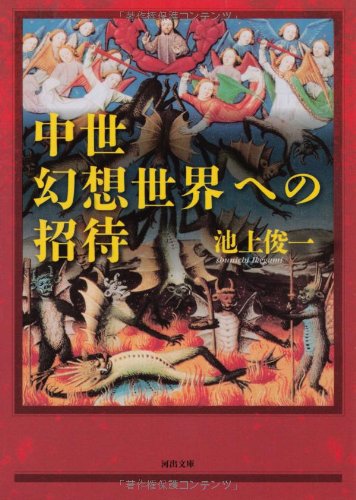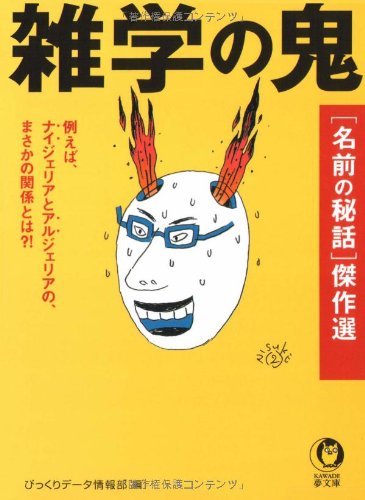1 0 0 0 OA 犬童球渓の作品目録 ①ピース譜
- 著者
- 森 みゆき 国府 華子 山﨑 浩隆 佐藤 慶治 正源司 有加
- 出版者
- 学校法人 尚絅学園 尚絅大学研究紀要編集部会
- 雑誌
- 尚絅大学研究紀要 A.人文・社会科学編 (ISSN:21875235)
- 巻号頁・発行日
- vol.55, pp.121-138, 2023-03-31 (Released:2023-08-04)
- 参考文献数
- 12
犬童球渓(1879-1943,本名は犬童信蔵)は,1907(明治40)年『中等教育唱歌集』に所収された《旅愁》の作詞で有名だが,音楽教育に従事する教員でもあった。生涯に500曲以上の作詞・作曲作品を残したが,音楽学的見地からの研究は未だ進められていない。犬童は『中等教育唱歌集』での発表を皮切りに,教科書や雑誌,ピース譜に作品を発表し続けた。教科書,雑誌,ピース譜には重複して掲載されている作品も多い。筆者らは最終的には犬童の全作品目録を纏める計画であるが,本稿ではその第一弾としてピース譜に掲載された作品について目録を作成する。
- 著者
- Md. SHAHIDUZZAMAN Masahiro NAKANO Shinjiro UMEZU Makoto KARAKAWA Jean-Michel NUNZI Tetsuya TAIMA
- 出版者
- The Imaging Society of Japan
- 雑誌
- 日本画像学会誌 (ISSN:13444425)
- 巻号頁・発行日
- vol.62, no.3, pp.239-456, 2023-06-10 (Released:2023-06-10)
- 参考文献数
- 27
The structure of the perovskite photoabsorber is one of the utmost key aspects to influence the performance of perovskite solar cells. However, it is quite challenging to attain perovskite films meeting of the essential properties scuh as, large grain sizes with few grain boundaries, high crystallinity and homogeneous morphology, by the present preparation methods. In this mini review, we report on the recent progress of perovskite nanostructured solar cells fabricated by simple, low-cost techniques, and their physical properties. We discuss challenges and future research direction for the fabrication of nanostructured perovskite solar cells.
- 著者
- 佐藤 泰司 東 昇吾 竹内 隆治 川島 帝都夫 高藤 豊治 戸澤 孝夫 池谷 知格
- 出版者
- 杏林医学会
- 雑誌
- 杏林医学会雑誌 (ISSN:03685829)
- 巻号頁・発行日
- vol.17, no.2, pp.161-169, 1986-06-30 (Released:2017-02-13)
副第5指屈筋はヒトの足底で観察出来る小型の破格筋で, 本筋の起源については古くから多くの論説のある興味深い筋である。著者らは日本人成人遺体10体(男6体, 女4体)を検索し, 4体・6体側例の副第5指屈筋を認めた。体側別出現頻度は両側2体, 左側1体および右側1体で, 性別出現頻度は男3体, 女1体であった。また, 1例は副第5指屈筋, 副第4指屈筋および副第3指屈筋の共存する非常に稀な破格であった。破格筋の支配神経については1例のみ外側足底神経の筋枝を確認することが出来た。
- 著者
- 竹内 潔
- 出版者
- 日本地域政策学会
- 雑誌
- 日本地域政策研究 (ISSN:13485539)
- 巻号頁・発行日
- vol.23, pp.12-19, 2019-09-30 (Released:2022-02-25)
- 参考文献数
- 9
Cultural policy as one of the regional policies had developed cultural facilities (hardware) in local areas. After that, it became to encourage cultural activities (software) utilizing those cultural facilities. And then, it is becoming to be required cooperation with related policy areas such as tourism, town development and education. The “Bird Theater” which is a regional theater company based in Shikano-cho, Tottori City, supported a compulsory education school the “Shikano Gakuen” to form a new subject named “Arawashika” including cultural activities such as theatrical workshops. The theater company proposed that theatrical workshops contribute to “proactive, interactive and deep learning” required under new curriculum guidelines and the school accepted the proposal. This case shows a good collaboration between culture and education with the purpose of fostering the ability to survive an unprecedented social environment such as population decline and practices like this case will also contribute to maintain regional sustainability.
1 0 0 0 OA 部落推薦の歴史的変遷について 鳥取県八頭郡佐治村の場合
- 著者
- 春日 雅司
- 出版者
- 社会学研究会
- 雑誌
- ソシオロジ (ISSN:05841380)
- 巻号頁・発行日
- vol.33, no.2, pp.39-60,189, 1988-09-30 (Released:2017-02-15)
Many researchers point out that after the World War II,Japanese voting behavior has changed from collective and particularistic social relationship (especially Buraku Suisen system) to individual and universal one. This view is a common interpretation in sociology and political science. But it is not yet sufficiently verified by the scientific and objective methods in both sciences. There fore in this article, I will' take the case of a village in Tottori prefecture and verify the changing processes of the Buraku Suisen system in voting behavior, based on a data of candidates 'poll and presumptive voters' number. And it will then be testified in the Buraku (neighborhood community) and the district of the primary school how far the voters support thier (Buraku's) candidate. My findings are as follows. After the war, in the Buraku level, having a candidate or not, all voters persistently tend to follw the Buraku Suisen system, and in the district of the primary school level, the voters don't support any candidates beyond their districts. In short, the Burakus don't tend to lose its political autonomy, and the district of the primary school is constantly autonomous in voting behavior.
1 0 0 0 OA ダム建設に伴う学校教育構造の変化 一ツ瀬ダムを中心として
- 著者
- 泉 幸雄
- 出版者
- 日本教育社会学会
- 雑誌
- 教育社会学研究 (ISSN:03873145)
- 巻号頁・発行日
- vol.18, pp.109-122, 1963-10-20 (Released:2011-03-18)
1 0 0 0 OA 血管内皮に対する尿酸の影響
- 著者
- 東 幸仁
- 出版者
- 一般社団法人 日本痛風・核酸代謝学会
- 雑誌
- 痛風と核酸代謝 (ISSN:13449796)
- 巻号頁・発行日
- vol.38, no.2, pp.146-147, 2014 (Released:2014-12-20)
平成12年度から13年度にかけて、本研究は、わが国固有の事情に適合した先住民族の権利実現の具体的モデルとなる事例を検討することを目指した。具体的には、アメリカ本土48州において確立している先住民法制の適用を受けておらず、合衆国政府から正式に先住民族としての認定を受けていないという点でハワイ先住民とアイヌ民族に近似性があるとの認識に基づき、ハワイ先住民の法的地位およびそれに関する法制度を調査・検討した。とりわけ、OHA(ハワイ先住民局)の理事選挙の選挙権を先住民に限定することを違憲とした合衆国最高裁のRice v.Cayetano判決の意義・射程を検討するとともに、OHAを中心に実施されている先住民を対象にしたプログラムを調査・検討した。また、現在のハワイ先住民に関する法制度が、深く歴史に根ざしたものであるため、ハワイ王国建国前後からの法制史を調査した。この研究の結果、合衆国法によって先住民族との認定を受けなくても、合衆国憲法の平等保護条項に違反することなく先住民としての権利を保障することは必ずしも不可能ではないことを認識するに至った。アメリカにおいては、まさにこの考え方がRice事件において争われたと見ることができるが、ロジックとして成立しうるとすれば、あとは政治的決断の問題である。そうであるならば、その政治的決断を導く要因は何か、が次に探求されるべき課題となろう。ハワイにおいては1974年の州憲法改正においてこの決断が積極になされ、Rice判決以後、この決断が消極になされそうな気配が見える。この両者を比較して考究することで、ハワイと同様に多数者に対する経済的利得という事情の無い日本において、憲法に抵触することなく先住民族の権利を保障する方途が見えてくるはずであるとの着想を得た。今後は、この着想を発展させ、日本に適合的な先住民法制のあり方を具体的に考究していくことにしたい。
- 著者
- Miku Toyozaki Mizuko Osaka Kazuo Kondo Masayuki Yoshida
- 出版者
- Japan Oil Chemists' Society
- 雑誌
- Journal of Oleo Science (ISSN:13458957)
- 巻号頁・発行日
- vol.62, no.4, pp.201-205, 2013 (Released:2013-03-28)
- 参考文献数
- 20
- 被引用文献数
- 3 4
Recent studies have reported that dipeptidyl-peptitase IV (DPP-IV) is correlated with diabetic conditions and also with dyslipidemia caused by overnutrition, especially a high fat diet. However, the role of DPP-IV in diabetes during dyslipidemia has been unclear. We utilized a lymph fistula rat model to determine whether intestinal lymph, which absorbs dietary fats, is affected by a chronic high-fat and high-cholesterol diet (HFHC). HFHC diet rats showed significantly higher DPP-IV activity in intestinal lymph and plasma compared to rats receiving a normal chow diet. In addition, HFHC diet rats showed significantly increased DPP-IV mRNA expression in the intestine. However, DPP-IV mRNA in the lymphocytes isolated from intestinal lymph and mesenteric lymph nodes did not show significant differences from that in the normal diet rats. In conclusion, HFHC diets increased DPP-IV expression in intestinal lymph; these results indicate the applicability of a previously unrecognized role for DPP-IV in metabolic disorders, including diabetes.
1 0 0 0 OA 教室学習文脈へのリアリティ付与について : ジャスパープロジェクトを例に
- 著者
- 鈴木 克明
- 出版者
- 日本教育メディア学会
- 雑誌
- 教育メディア研究 (ISSN:13409352)
- 巻号頁・発行日
- vol.2, no.1, pp.13-27, 1995-12-01 (Released:2017-07-18)
- 被引用文献数
- 3
本論では、状況的学習観に基づく算数の問題解決領域の授業を支援するためのバンダービル大学における教材開発研究「ジャスパープロジェクト」を詳細に取り上げ、教室学習文脈へのリアリティ付与について、その可能性と課題を考察した。ジャスパー教材群の中心をなす6つの冒険物語と7つの教材設計原則(ビデオ提示、物語形式、生成的学習、情報埋め込み設計、複雑な問題、類似冒険のペア化、教科間の連結)を紹介し、評価研究のあらましを述べた。3つのジャスパー教材の利用形態(積み上げ式直接教授法、構造的問題解決法、生成援助法)とそれを支える授業観を吟味し、プロジェクト推進者の推奨する「生成援助型」の授業における教師の役割変化について言及した。最後に、授業設計モデルと状況的学習観からのジャスパー批評をまとめ、教室学習文脈のリアリティについて吟味した。
1 0 0 0 OA 元会長西村睦男先生の御逝去を悼んで
- 著者
- 石原 潤
- 出版者
- 一般社団法人 人文地理学会
- 雑誌
- 人文地理 (ISSN:00187216)
- 巻号頁・発行日
- vol.58, no.3, pp.231-234, 2006 (Released:2018-01-06)
1 0 0 0 OA 道案内の指さしに見る「絶対・相対参照枠」の主観的融合(<特集>主観性とパースペクティブ)
- 著者
- 片岡 邦好
- 出版者
- 一般社団法人 人工知能学会
- 雑誌
- 人工知能 (ISSN:21882266)
- 巻号頁・発行日
- vol.26, no.4, pp.323-333, 2011-07-01 (Released:2020-09-29)
1 0 0 0 OA <批評・紹介>羽田明著 中央アジア史研究
- 著者
- 佐口 透
- 出版者
- 東洋史研究會
- 雑誌
- 東洋史研究 (ISSN:03869059)
- 巻号頁・発行日
- vol.42, no.1, pp.149-155, 1983-06-30
1 0 0 0 OA <批評・紹介>外山軍治著「金朝史研究」
- 著者
- 河内 良弘
- 出版者
- 東洋史研究會
- 雑誌
- 東洋史研究 (ISSN:03869059)
- 巻号頁・発行日
- vol.24, no.1, pp.102-107, 1965-06-30
1 0 0 0 OA 国際化時代の知的所有権をめぐる若干の考察
- 著者
- 中山 政義 ナカヤマ マサヨシ Masayoshi Nakayama
- 雑誌
- 国際政経
- 巻号頁・発行日
- vol.1, pp.67-75, 1992-07-01
1 0 0 0 OA 西スマトラ産サトイモ科の1新属
- 著者
- 堀田 満
- 出版者
- Japanese Society for Plant Systematics
- 雑誌
- 植物分類,地理 (ISSN:00016799)
- 巻号頁・発行日
- vol.32, no.5-6, pp.142-146, 1981-10-15 (Released:2017-09-25)
1 0 0 0 ヘルン研究
- 著者
- 富山大学ヘルン(小泉八雲)研究会 [編]
- 出版者
- 富山大学ヘルン(小泉八雲)研究会
- 巻号頁・発行日
- 2016
1 0 0 0 中世幻想世界への招待
- 著者
- びっくりデータ情報部編
- 出版者
- 河出書房新社
- 巻号頁・発行日
- 2004






